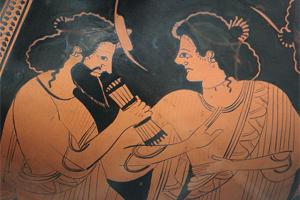Quick English: Using the Word "May"
To celebrate the first day of May, we're going to share some uses of this versatile word with you. (May 1 is known as May Day. You can learn a bit more about May Day here!)
May, the month, was named after the Greek goddess Maia. In Ancient Greek, her name is related to the word for midwife. In the northern 
Did you know? No other month begins or ends on the same day of the week as May within a year.
"May" is more than just the name of a month, however.
* May can be used to ask for or offer permission.
"May I go now?"
"Yes you may."
* It can also be used to express possibility.
It may rain tomorrow. Should we cancel the picnic?
* It's also used to express a condition.
I may be wrong, but I'm pretty sure she was at the restaurant last night.
* It can be used to indicate acknowledgement of a truth.
She may not be the smartest person in class, but she works very hard.
* Finally, it can also be used to express a wish or desire someone.
May you live to an old age.

There are also some older uses of the word may as a noun. One of them means the prime of your life, but you wouldn't hear people say it now. This happens with a lot of words; language goes in and out of style just like clothing.
May you have a happy May! And if you celebrated May Day, might you tell us about it below?
